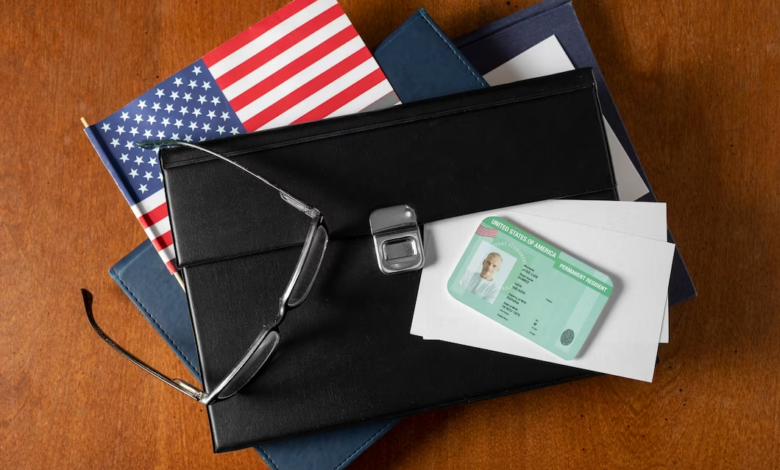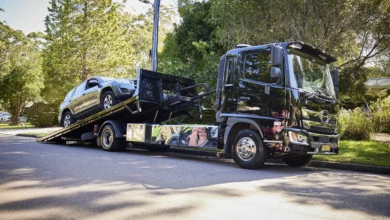What You Need to Know About the UK Ancestry Visa and How to Secure It

The UK Ancestry Visa is a popular immigration route for individuals from certain Commonwealth countries who have British ancestry. It allows the holder to live and work in the United Kingdom for up to five years, and after this period, they may be eligible to apply for indefinite leave to remain (ILR) and eventually British citizenship. Whether you’re looking to reconnect with your heritage or pursue better career opportunities in the UK, this visa offers an excellent pathway. However, there are specific eligibility requirements and steps to follow in the application process. This article provides a comprehensive overview of what you need to know about the UK Ancestry Visa and how to secure it.
What is the UK Ancestry Visa?
The UK Ancestry Visa allows citizens of Commonwealth countries to live and work in the UK if they can prove they have a grandparent who was born in the UK, the Channel Islands, or the Isle of Man. This visa is an ideal option for those with British ancestry who want to pursue a career or educational opportunities in the UK or simply enjoy the lifestyle and benefits the country offers.
Once granted, the visa is typically valid for five years. During this time, you can work, study, and even bring dependents to the UK. After the five years, you may be eligible to apply for Indefinite Leave to Remain (ILR) provided you meet the necessary requirements, which is a crucial step toward permanent residency and eventual citizenship.
Eligibility Criteria for the UK Ancestry Visa
To be eligible for the UK Ancestry Visa, applicants must meet certain criteria:
- Nationality: You must be a citizen of one of the Commonwealth countries. This includes countries like Australia, Canada, New Zealand, India, South Africa, and several Caribbean nations. Citizens of countries outside the Commonwealth are not eligible for this visa route.
- Proof of Ancestry: You must demonstrate that you have a grandparent who was born in the UK, the Channel Islands, or the Isle of Man. This includes providing birth certificates, marriage certificates, and other official documents that trace your ancestry back to this British-born grandparent.
- Age Requirements: You must be at least 17 years old to apply for the visa. There is no maximum age limit.
- Financial Requirements: Applicants must prove they can financially support themselves (and any dependents) during their stay in the UK. This means showing that you have enough money to live on without relying on public funds. This could be through personal savings or a job offer in the UK.
- Ability to Work in the UK: You must intend to work in the UK. This can include full-time employment, self-employment, or work as a freelancer. You can also study during your time in the UK, provided it doesn’t interfere with your ability to work.
- Good Health and Character: You must not have any serious criminal convictions, and you may be asked to provide a health screening. Additionally, applicants must be free from tuberculosis (TB) in certain countries.
Required Documents for the Application
When applying for the UK Ancestry Visa, you must provide several documents to demonstrate your eligibility. These documents include, but are not limited to:
- Proof of identity and nationality: Passport or other travel document.
- Proof of ancestry: Birth certificates or other official documents proving your grandparent’s birth in the UK, Channel Islands, or Isle of Man.
- Proof of financial support: Bank statements, payslips, or evidence of a job offer to demonstrate you can financially sustain yourself.
- Tuberculosis test results (if applicable) from a recognized clinic.
- Criminal record certificate (if requested by the Home Office).
The exact documents required may vary depending on your individual circumstances and the specific requirements of the UK visa office where you apply.
How to Apply for the UK Ancestry Visa
The application process for the UK Ancestry Visa is straightforward, but it requires careful attention to detail. Here’s a step-by-step guide on how to apply:
- Complete the Online Application: Applications for the UK Ancestry Visa are submitted online through the official UK government website. You will need to create an account and fill out the application form, providing details about your personal information, ancestry, employment history, and finances.
- Pay the Visa Fee: The application fee for the UK Ancestry Visa is typically £531, although this can vary depending on your location. You may also be required to pay the healthcare surcharge as part of your application, which entitles you to access the UK’s National Health Service (NHS).
- Provide Biometrics: After submitting your online application, you will need to visit a local visa application center to provide your biometric information, including fingerprints and a photograph.
- Submit Supporting Documents: Along with your online application, you must submit the required supporting documents. These documents will help the Home Office assess your eligibility for the visa.
- Attend an Interview (if required): In some cases, you may be asked to attend an interview where you can provide further details about your application. This is not always required but should be expected if the Home Office has any doubts about your application.
- Wait for the Decision: The Home Office will review your application and notify you of their decision. The processing time for the UK Ancestry Visa is typically around 8 weeks, but it can take longer in some cases.
Living and Working in the UK on an Ancestry Visa
Once your UK Ancestry Visa is granted, you are allowed to live, work, and study in the UK for up to five years. This is a great opportunity to explore job opportunities, start a business, or pursue further education in the UK.
- Work in the UK: The UK Ancestry Visa allows you to work full-time, part-time, or freelance. There are no restrictions on the type of work you can do, and you do not need a sponsor to apply for a job. You can also change jobs during your stay without needing to apply for a new visa.
- Study in the UK: You are also allowed to study while on an Ancestry Visa. However, your primary focus should be on employment, so you must not rely on student loans or public funds to support your living expenses.
- Bringing Dependents: You may bring your spouse or partner and children under 18 years old as dependents. They will need to apply for their own visas and meet the appropriate financial requirements.
PBS Dependent Visa
If you are a holder of a Points-Based System (PBS) visa, such as a Tier 2 General Visa, Tier 4 Student Visa, or Tier 5 Temporary Worker Visa, your dependents may apply for a PBS Dependent Visa to join you in the UK. This visa allows your dependents to live, work, and study in the UK for the duration of your stay. Dependents of UK Ancestry Visa holders are eligible for the same rights— they can work, study, and live in the UK, but they will need to provide additional evidence of their relationship to the primary visa holder.
Extending or Switching to Indefinite Leave to Remain
After holding the UK Ancestry Visa for five years, you can apply for Indefinite Leave to Remain (ILR), which grants you permanent residency in the UK. To qualify, you must:
- Have lived in the UK for five years on an Ancestry Visa.
- Prove you’ve been continuously employed or self-employed.
- Meet the English language requirement.
- Pass the Life in the UK test, which assesses your knowledge of British history, culture, and society.
Once granted ILR, you can stay in the UK without restrictions and eventually apply for British citizenship if you meet the other eligibility criteria.
Conclusion
The UK Ancestry Visa is a fantastic opportunity for Commonwealth citizens with British roots to live, work, and study in the UK. With careful preparation and a clear understanding of the requirements, the application process can be straightforward. Whether you’re looking to reconnect with your heritage or build a future in the UK, this visa provides a valuable route for those eligible. By following the outlined steps and ensuring all required documents are submitted correctly, you can maximize your chances of securing the visa and starting your new life in the UK.




